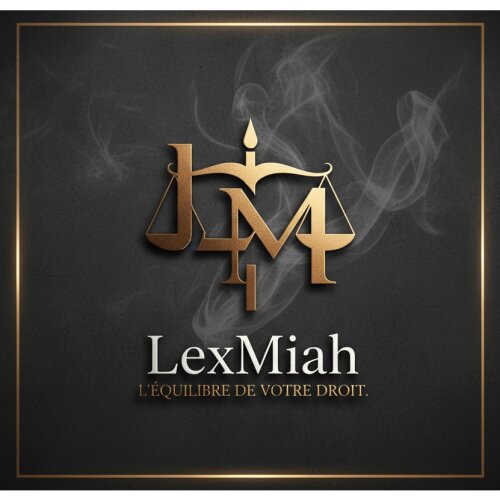Best Family Lawyers in Madagascar
Share your needs with us, get contacted by law firms.
Free. Takes 2 min.
Free Guide to Hiring a Family Lawyer
Or refine your search by selecting a city:
List of the best lawyers in Madagascar
About Family Law in Madagascar
Family law in Madagascar encompasses various legal issues related to the familial unit. It addresses matters such as marriage, divorce, child custody, adoption, and inheritance. The legal framework is influenced by a mix of customary practices, colonial-era legislation, and modern legal reforms. The family is viewed as a fundamental societal unit and is given protection under the Malagasy legal system. The underlying principles of family law in Madagascar aim to safeguard the interests, rights, and responsibilities of all family members while maintaining social harmony.
Why You May Need a Lawyer
There are several situations where individuals may require legal assistance in family law matters in Madagascar:
- Marriage and Divorce: Legal help may be needed for marriage contracts, divorce proceedings, and spousal support issues.
- Child Custody and Support: When resolving custody arrangements and child support during or after divorce.
- Adoption: Navigating the legal processes associated with adopting a child.
- Inheritance and Estates: Legal guidance for will creation or dispute resolution over inheritance.
- Domestic Violence: Seeking legal protection and remedies in cases of domestic abuse.
Local Laws Overview
Madagascar's family law includes statutes that govern marriage, divorce, and family relations. The main legal document is the Family Code, which outlines the rights and obligations of spouses, parents, and children. Marital property is subject to community property rules unless stipulated otherwise by a marriage contract. Customary law can also play a significant role in family matters, particularly in rural areas. Divorce can be granted on grounds such as adultery, abandonment, or mutual consent. Child custody is determined with the child's best interests as the primary consideration.
Frequently Asked Questions
What are the legal requirements for getting married in Madagascar?
Prospective spouses must meet minimum age requirements, provide proof of identity and marital status, and have the marriage registered with local authorities. Special procedures may apply for foreign nationals.
How is divorce initiated in Madagascar?
Divorce can be initiated through a petition to the court on grounds like adultery, abandonment, or irreconcilable differences. Both parties should ideally retain separate legal counsel.
How does child custody work following a divorce?
Child custody is determined based on the best interests of the child, considering factors such as parental capacity, the child's needs, and the existing relationship with each parent.
What are the rules on child support in Madagascar?
Child support is determined by the court, taking into account the financial capacity of the non-custodial parent and the reasonable needs of the child.
How can I adopt a child in Madagascar?
Adoption procedures involve stringent legal processes, including an application, assessment of the prospective parents, and approval by the relevant authorities.
What measures exist for protection against domestic violence?
The law provides mechanisms for protection orders and action against perpetrators, including legal separation or criminal charges.
Are customary practices recognized in family law matters?
Yes, particularly in rural areas, customary practices can influence marriage, divorce, and inheritance; however, they cannot conflict with statutory law.
Can I create a will for property distribution?
Yes, individuals can draft a will to specify property distribution. It is advisable to engage legal assistance to ensure it complies with legal requirements.
What happens if there is no will upon death?
If there is no will, property distribution follows intestate succession laws, typically favoring the closest relatives.
How can mediation help in family disputes?
Mediation offers a confidential and less adversarial way to resolve family disputes, often leading to more amicable settlements.
Additional Resources
For additional guidance on family law issues in Madagascar, consider reaching out to the following:
- Ministry of Justice
- Local legal aid clinics
- Organizations specializing in family welfare and child protection
- Non-Governmental Organizations, such as those focusing on women's and children's rights
Next Steps
If you require legal assistance in family matters, consider taking the following steps:
- Contact a qualified family lawyer with expertise in Malagasy family law.
- Gather all relevant documentation related to your case, such as marriage certificates, identity documents, and existing legal orders.
- Schedule a consultation to discuss your legal options and potential strategies for your situation.
- Utilize mediation services if the situation allows, which can be a cost-effective means of dispute resolution.
Lawzana helps you find the best lawyers and law firms in Madagascar through a curated and pre-screened list of qualified legal professionals. Our platform offers rankings and detailed profiles of attorneys and law firms, allowing you to compare based on practice areas, including Family, experience, and client feedback.
Each profile includes a description of the firm's areas of practice, client reviews, team members and partners, year of establishment, spoken languages, office locations, contact information, social media presence, and any published articles or resources. Most firms on our platform speak English and are experienced in both local and international legal matters.
Get a quote from top-rated law firms in Madagascar — quickly, securely, and without unnecessary hassle.
Disclaimer:
The information provided on this page is for general informational purposes only and does not constitute legal advice. While we strive to ensure the accuracy and relevance of the content, legal information may change over time, and interpretations of the law can vary. You should always consult with a qualified legal professional for advice specific to your situation.
We disclaim all liability for actions taken or not taken based on the content of this page. If you believe any information is incorrect or outdated, please contact us, and we will review and update it where appropriate.
Browse family law firms by service in Madagascar
Madagascar Attorneys in related practice areas.
Browse family law firms by city in Madagascar
Refine your search by selecting a city.









